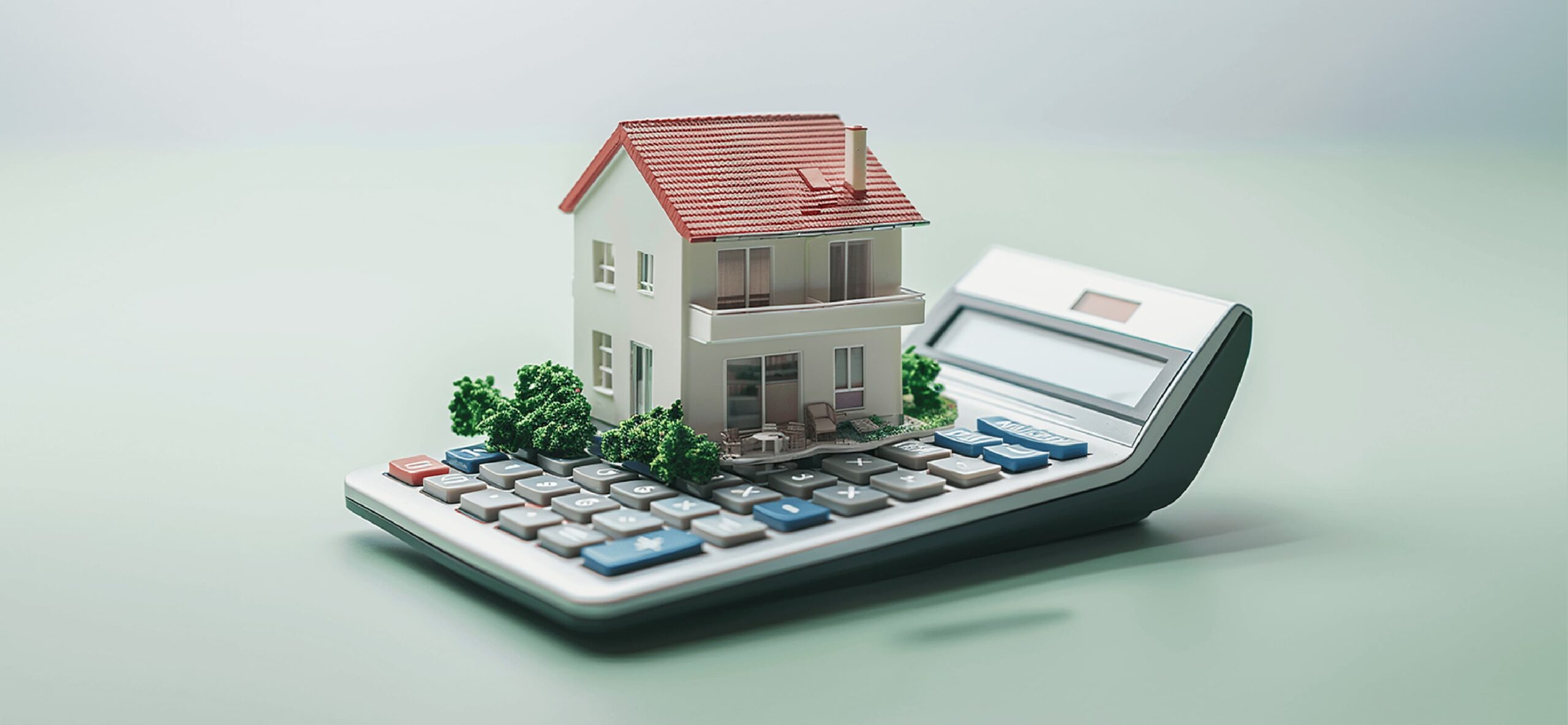GST in Real Estate in India: Insights for Homebuyers (2024)

Let’s discuss the Goods and Services Tax (GST) in relation to real estate. The GST, which started in India in July 2017, changed how taxes work in the real estate industry. It replaced several other taxes and was meant to make things more transparent and reduce the cost of buying and selling properties.
For people looking to buy a home, it’s important to understand how GST on buying flat affects the overall cost of the property. GST applies to properties that are still being built but not to ones that are already finished, which can have a big impact on your decision to buy. Knowing the GST rates on flat, exemptions, and how the costs break down can help you plan your finances better and avoid surprises.
The goal of this blog is to explain the GST in real estate. We want to give homebuyers clear and simple information about the Impact of GST on real estate and how these things affect property prices. With this knowledge, you can better understand GST and make smarter choices when investing in real estate.
In metro cities, you can find apartments that are up to 60 square meters and cost up to ₹45 lakhs. In non-metro cities, apartments can be up to 90 square meters and still cost up to ₹45 lakhs. If you’re buying a ready-to-move-in property, you don’t have to pay any GST. This applies to properties where the completion certificate has been issued before the sale. Input Tax Credit (ITC) is a way for businesses to reduce the tax they’ve paid. In real estate, developers can’t claim ITC for the GST they’ve paid on construction materials and services anymore. Understanding ITC is helpful for buyers to know how tax policies affect the prices of under-construction properties and to know the several factors that influence the flat registration GST charges. Understanding these factors can help you make a more error-free decision.
Keep in mind that where a property is located can impact extra expenses like stamp duty and registration fees, which can vary depending on the state. It’s important to understand how GST and state-specific taxes can affect your budget. For example, states like Maharashtra and Karnataka have their own stamp duty rates, which can make a big difference in the total cost. The value of the property is also a big factor in whether GST applies. Higher-value properties may have more taxes and fees, so it’s something to think about when you’re buying. Properties above a certain value might have different tax rates or be subject to luxury taxes.
The Pradhan Mantri Awas Yojana (PMAY) provide affordable housing. Three crore additional houses will be provided under the PM Awas Yojana in rural and urban areas. Under PM Awas Yojana Urban 2.0, the housing needs of 1 crore urban middle-class and low-income families will be addressed with an investment of Rs. 10 lakh crores, including central assistance of Rs. 2.2 lakh crore over the next five years. In the Financial Budget 2023-2024, the outlay for the Pradhan Mantri Awas Yojana has increased by 66% to over Rs. 79,000 crores.
If you need more detailed insights or personalized assistance navigating the complexities of the GST impact, you can reach out to BeyondWalls for help making informed and confident property investment decisions. BeyondWalls is one of the online property portals in India. It can guide you to buy one of the best property sites in India for real estate properties in India. Contact BeyondWalls today!
For people looking to buy a home, it’s important to understand how GST on buying flat affects the overall cost of the property. GST applies to properties that are still being built but not to ones that are already finished, which can have a big impact on your decision to buy. Knowing the GST rates on flat, exemptions, and how the costs break down can help you plan your finances better and avoid surprises.
The goal of this blog is to explain the GST in real estate. We want to give homebuyers clear and simple information about the Impact of GST on real estate and how these things affect property prices. With this knowledge, you can better understand GST and make smarter choices when investing in real estate.
Current GST Rates on Flat Purchases in 2024
When you’re buying a flat that’s still being built, here are the flat purchase GST rates you need to know:Standard Rate:
5% of the total cost of the property, but this doesn’t include any tax credit benefits.Affordable Housing Rate:
1% on the total cost of the property, also without any tax credit benefits.
In metro cities, you can find apartments that are up to 60 square meters and cost up to ₹45 lakhs. In non-metro cities, apartments can be up to 90 square meters and still cost up to ₹45 lakhs. If you’re buying a ready-to-move-in property, you don’t have to pay any GST. This applies to properties where the completion certificate has been issued before the sale. Input Tax Credit (ITC) is a way for businesses to reduce the tax they’ve paid. In real estate, developers can’t claim ITC for the GST they’ve paid on construction materials and services anymore. Understanding ITC is helpful for buyers to know how tax policies affect the prices of under-construction properties and to know the several factors that influence the flat registration GST charges. Understanding these factors can help you make a more error-free decision.
Type of Property
GST on property purchases varies depending on whether the property is residential or commercial. While this guide focuses on residential properties, it is essential to note that commercial properties have different GST rates and regulatory requirements. For instance, commercial properties generally attract a higher GST rate than residential properties.Residential Property
Commercial property
| Under-construction (Affordable) | Properties meeting affordable housing criteria | 1% |
| Under-construction(Non-affordable) | Other residential properties under construction | 5% |
| Ready-to-Move-In | Properties with Completion Certificate issued before sale | Exempt |
| Under-Construction | All commercial properties under construction | 12% |
| Ready-to-Move-In | Commercial properties with Completion Certificate issued before sale | Exempt |
Keep in mind that where a property is located can impact extra expenses like stamp duty and registration fees, which can vary depending on the state. It’s important to understand how GST and state-specific taxes can affect your budget. For example, states like Maharashtra and Karnataka have their own stamp duty rates, which can make a big difference in the total cost. The value of the property is also a big factor in whether GST applies. Higher-value properties may have more taxes and fees, so it’s something to think about when you’re buying. Properties above a certain value might have different tax rates or be subject to luxury taxes.
Affordable Housing Schemes for First-Time Homebuyers
Many states offer additional concessions to first-time homebuyers, which can significantly reduce the financial burden. These benefits make homeownership more attainable for new buyers. For example, some states offer stamp duty rebates or reduced registration fees for first-time buyers like PMAY (Pradhan Mantri Awas Yojana) and PPP.The Pradhan Mantri Awas Yojana (PMAY) provide affordable housing. Three crore additional houses will be provided under the PM Awas Yojana in rural and urban areas. Under PM Awas Yojana Urban 2.0, the housing needs of 1 crore urban middle-class and low-income families will be addressed with an investment of Rs. 10 lakh crores, including central assistance of Rs. 2.2 lakh crore over the next five years. In the Financial Budget 2023-2024, the outlay for the Pradhan Mantri Awas Yojana has increased by 66% to over Rs. 79,000 crores.
Conclusion
Understanding the GST on real estate purchases and their implications is important for anyone looking to buy a home. Knowing the applicable rates, exemptions, and potential costs can help you plan your finances and avoid unexpected expenses, making the property purchase process smooth and transparent.If you need more detailed insights or personalized assistance navigating the complexities of the GST impact, you can reach out to BeyondWalls for help making informed and confident property investment decisions. BeyondWalls is one of the online property portals in India. It can guide you to buy one of the best property sites in India for real estate properties in India. Contact BeyondWalls today!
Thank you. Your comment will be visible after an approval.
Comments (0)
No comments found.Featured Articles

Proven Framework for High Velocity Launches
Recent Articles

Navi Mumbai International Airport: Project Details, Status and Latest Updates

Cost of Constructing a House in India (2025): Per Sq Ft Explained

Can Mistakes in Property Documents Be Rectified?

Income from House Property: How Is Rental Income Taxed in 2025–26?

Your Building May Soon Be Checked: What MHADA’s 2025 Structural Audit Means for You

Add your comment